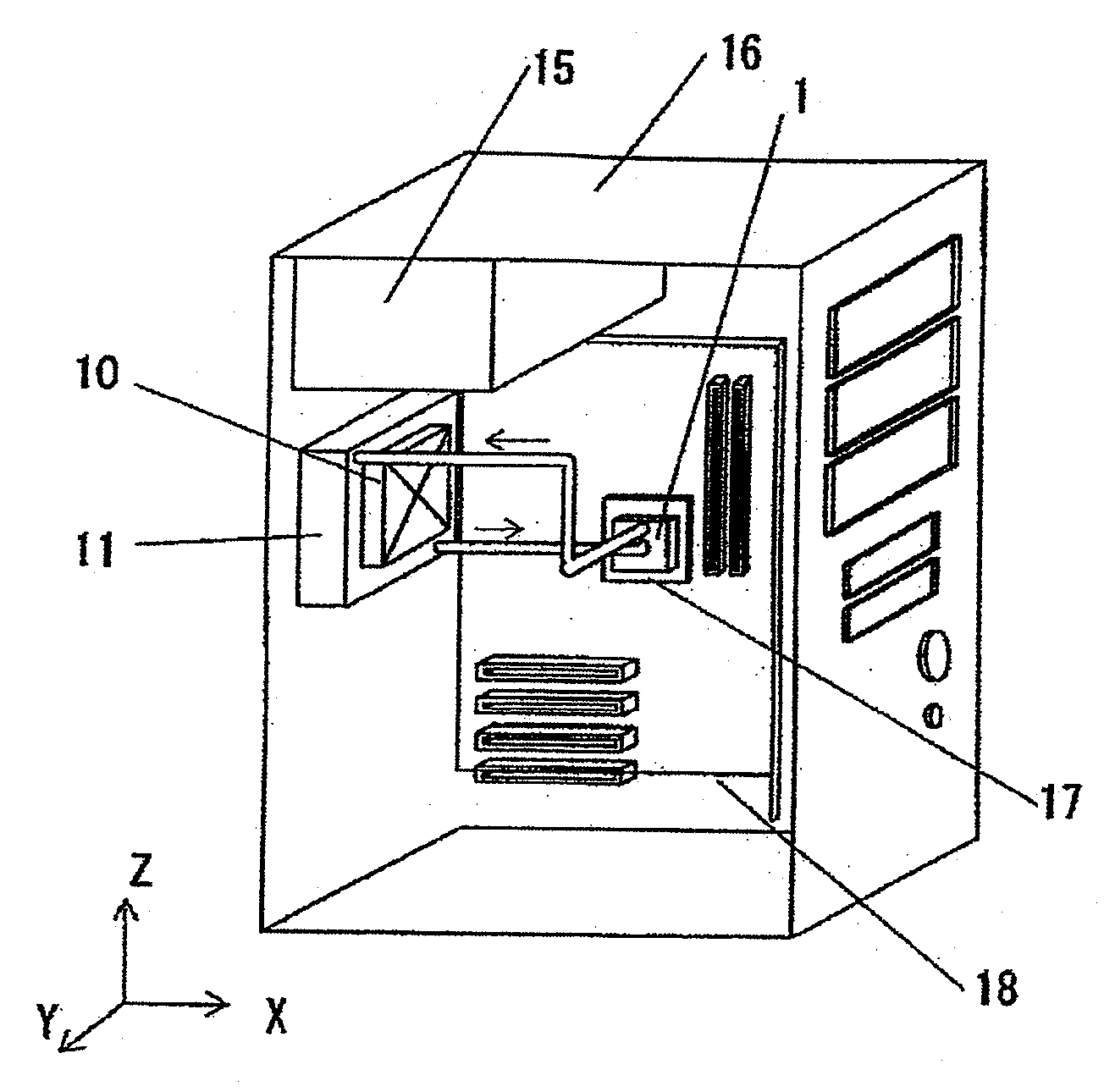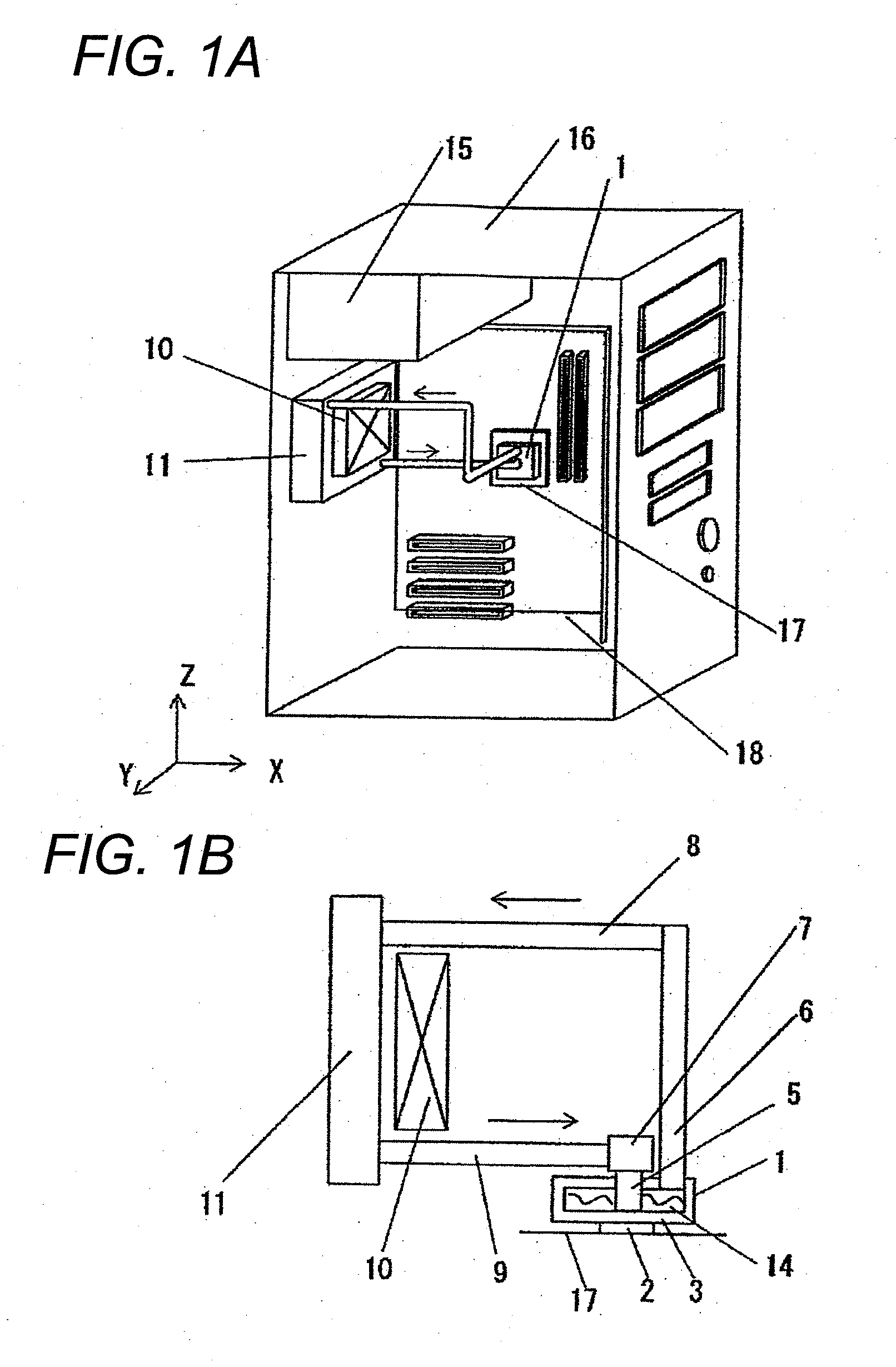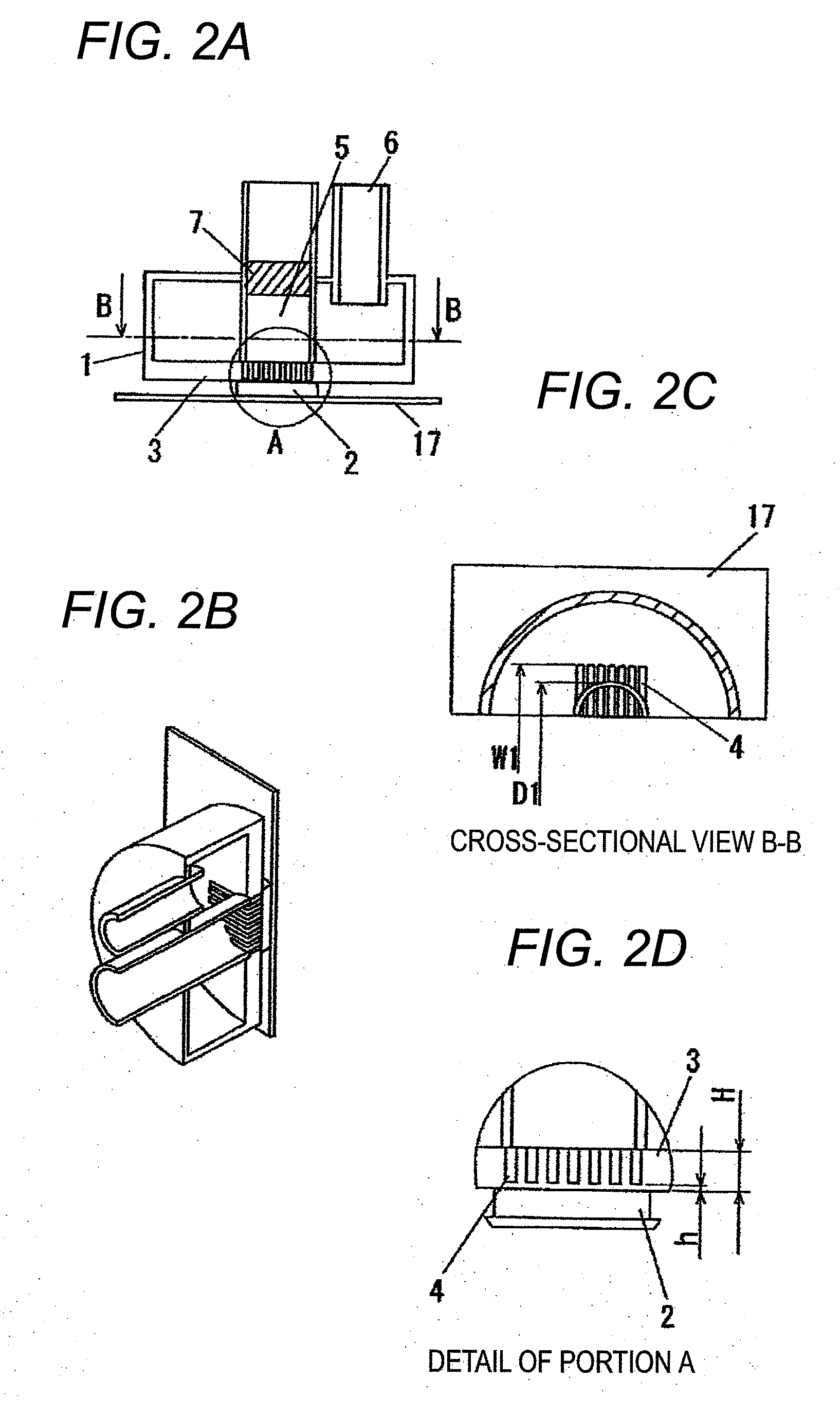Heatsink apparatus and electronic device having the same
a heatsink and electronic device technology, applied in the field of heatsink apparatuses, can solve the problems of increasing insufficient capacity of cooling electronic components generating a large amount of heat, enhancing the performance of the heat receiver, and reducing the efficiency of the heatsink, so as to achieve excellent cooling performance, high heat-receiving performance, and high operation stability
- Summary
- Abstract
- Description
- Claims
- Application Information
AI Technical Summary
Benefits of technology
Problems solved by technology
Method used
Image
Examples
first embodiment
[0080]FIG. 1A is a perspective view when a heatsink apparatus according to a first embodiment of the present invention is provided in a personal computer (hereinafter referred to as a PC) unit; and FIG. 1B illustrates a structure of the heatsink apparatus of the present invention. As shown in FIG. 1A, PC unit 16 includes the heatsink apparatus according to the present invention, along with PC components, such as power source unit 15, motherboard 18, and the like. The heatsink apparatus includes box-shaped heat-receiving unit 1, which is connected to socket 17 of a heat-generating body, heat dissipater 11; and fan 10, which cools heat dissipater 11.
[0081]More specifically, the heatsink apparatus according to the present invention includes three main components and circulation components, as shown in FIG. 1B. The three main components are box-shaped heat-receiving unit 1, which includes heat-receiving plate 3; heat dissipater 11; and check valve 7, which determines a circulation direc...
second embodiment
[0103]In a second embodiment, the slits of the first embodiment are provided radially. For explanation purposes, identical reference numerals are provided to components identical to those in the first embodiment, and specific explanations thereof in the first embodiment are referred to.
[0104]A heatsink apparatus according to the second embodiment of the present invention is explained with reference to FIGS. 5A to 8D. FIG. 8A is a central vertical cross-sectional view of an alternative heat-receiving unit according to the second embodiment of the present invention; FIG. 8B is a cross-sectional perspective view of the heat-receiving unit of FIG. 8A; FIG. 8C is a horizontal cross-sectional view of the heat-receiving unit of FIG. 8A; and FIG. 8D is a cross-sectional detail view of portion A shown in FIG. 8A. As shown in FIG. 8A, slits 4, which are provided in heat-receiving plate 3 of heat-receiving unit 1 immediately above a heat-generating body, have a radial shape extending from a ce...
third embodiment
[0105]In a third embodiment, slits are not provided at a central portion of heat-receiving plate 3 contacting with heat-generating body 2. For explanation purposes, identical reference numerals are provided to components identical to those in the first and second embodiments, and specific explanations thereof in the first and second embodiments are referred to.
[0106]A case where slits 4 are provided in parallel is first explained with reference to FIGS. 9A to 9D. FIG. 9A is a central vertical cross-sectional view of heat-receiving unit 1 according to the third embodiment of the present invention; FIG. 9B is a cross-sectional perspective view of the heat-receiving unit of FIG. 9A; FIG. 9C is a horizontal cross-sectional view of the heat-receiving unit of FIG. 9A; and FIG. 9D is a cross-sectional detail view of portion A shown in FIG. 9A. As shown in FIG. 9A, slits 4, which are provided substantially in parallel in heat-receiving plate 3 of heat-receiving unit 1 immediately above a he...
PUM
 Login to View More
Login to View More Abstract
Description
Claims
Application Information
 Login to View More
Login to View More - R&D
- Intellectual Property
- Life Sciences
- Materials
- Tech Scout
- Unparalleled Data Quality
- Higher Quality Content
- 60% Fewer Hallucinations
Browse by: Latest US Patents, China's latest patents, Technical Efficacy Thesaurus, Application Domain, Technology Topic, Popular Technical Reports.
© 2025 PatSnap. All rights reserved.Legal|Privacy policy|Modern Slavery Act Transparency Statement|Sitemap|About US| Contact US: help@patsnap.com



